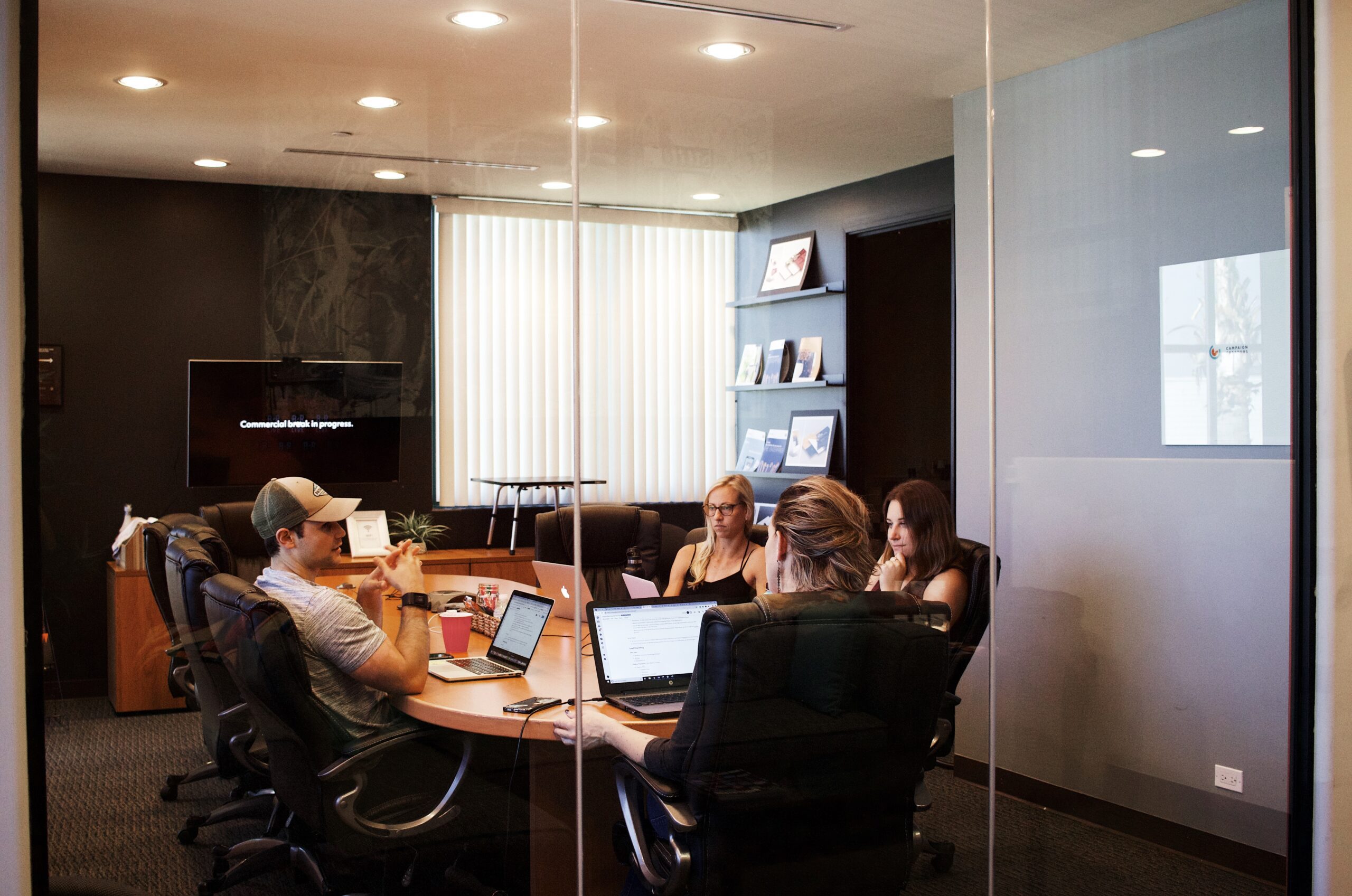Covid has permanently changed the way we work, and a significant number of office employees are now opting for a hybrid work model, rarely coming to the office on a daily basis. Effectively collaborating with employees in person or in a hybrid mode poses a new challenge for businesses. To ensure smooth operations and avoid overbookings and conflicts, achieving a reasonable office utilization rate is not only crucial for your Employment Brand and Employee Satisfaction but also highly related to your office ROI.
Meeting room booking system software is considered to be highly time-efficient due to its ability to keep track of records, enable automatic cancellations, and more. These systems play a vital role in reserving conference rooms and shared spaces within offices or co-working environments. By streamlining the process of scheduling meetings, one-on-ones, brainstorming sessions, and important announcements, meeting room booking systems ensure that both organizers and attendees can secure the space and resources they need effectively.

Why Meeting Room Booking Systems is Essential
Implementing meeting room booking systems can yield several advantages for businesses. Here are five key benefits and contributions worth noting:
- Eliminating Double-Booking Frustrations and Avoiding Over Bookings
Meeting room booking software eliminates conflicts and double bookings by providing real-time room availability and restricting bookings for unavailable rooms. This ensures that team members can start their meetings on time and avoid distractions caused by meeting space hiccups.
- Tailoring Rooms to Fit Needs and Avoiding Space Waste
Meeting room booking systems enable employees to find rooms suitable for their group size, eliminating the frustration of booking a large conference room for a small meeting or versus.
- Distributing Booking Responsibilities
Self-service meeting room booking tools reduce the burden on office managers and administrative professionals, allowing employees to have more control over their schedules and making it easy to update their meeting details without external assistance. Process automation is the key to save working hours to both meeting attendants, organizers and office managers. The office manager can configure the booking rules to save the communication hours.
- Planning for the requirement devices
Meeting organizers can request meeting accessories and accommodations when reserving a room, simplifying the process, and saving time. Furthermore, the meeting planner can even send out the checklist (including catering service list) and upload the required documents in advance to avoid back and forth email communications.
- Gaining Insights into Space Utilization
Meeting room booking tools offer valuable data on space utilization, helping businesses understand how their team members use different spaces and optimize office real estate effectively. In the dashboard, the meeting organizer can view the busy hours in the day, busy weeks in the month, and remind the users to use the meeting facilities in the reasonable way.
How to choose the right meeting management solutions
You should choose the right solution based on the needs and requirements. You can think about the following questions before choosing your ideal meeting management solution:
- How will the majority of your users access the booking system? Will they use PC web browsers, mobile applications, instant messaging platforms like Slack or Teams, or directly through electronic signage?
- your meeting room booking rules simple or complex?
- Consider whether your meeting rooms are used for internal purposes, external purposes, or a combination of both. Do you require an approval process for facility bookings? Additionally, do you need to charge for their usage based on booking hours and services rendered?
- Do you oversee the meeting rooms on a single floor, multiple floors, different buildings, or even across various sites and cities? If you are managing numerous rooms across different sites, a robust search feature would likely be necessary to assist you in finding the appropriate rooms efficiently.
- Think about your user access control. You may want to restrict internal and external users’ access to specific features, sites, floors, and facilities.
- Having a dashboard to visualize the booking status is beneficial, especially when managing numerous meeting rooms. It allows you to view the facility status on a daily, weekly, or even monthly basis.
Get started to book your meeting rooms now!
As we navigate the future of work, it becomes evident that in-person meetings will continue to play a vital role in fostering collaboration and innovation. To adapt to the hybrid working world, meeting room booking software solutions come to the forefront, making scheduling meetings more effortless and seamless. These tools offer an efficient solution for booking meeting rooms and shared spaces in both traditional offices and dynamic co-working environments.
One of the key advantages of meeting room booking tools is their ability to eliminate double booking and scheduling conflicts. With real-time room availability information, teams can confidently schedule meetings without the fear of overlapping appointments, ensuring a smooth and productive meeting experience. Moreover, these tools efficiently distribute coordination responsibilities, relieving the burden on the office management and administrative staff, while empowering employees to take control of their schedules and meeting arrangements.
Furthermore, meeting room booking platforms offer valuable insights into space utilization. By analyzing data on room usage and occupancy, businesses can make informed decisions about optimizing office layouts, managing resources efficiently, and planning for future spatial needs. These insights play a crucial role in driving future decisions about workspace design, resource allocation, and overall operational efficiency.
With various meeting room booking software options available, it is essential to explore and compare the different platforms. Requesting demos or signing up for free trials allows you to assess the features, functionalities, and user experience of each solution, ensuring that you find the best fit for your organization’s specific requirements and preferences. Embracing these innovative tools will undoubtedly streamline meeting management, enhance collaboration, and elevate the overall productivity in the ever-evolving landscape of work.
